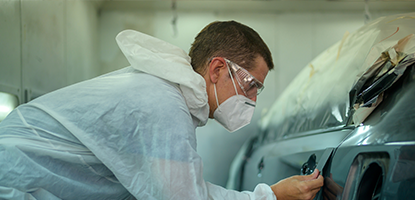5 December 2023
Blueprint for Automotive Training Presented to Government
The Motor Trade Association (MTA) is calling on the Government to restore an industry-led approach to automotive training.
 MTA has put forward a proposal to Penny Simmonds, Minister for Tertiary Education and Skills, outlining the need to decentralise vocational education for the automotive sector from Te Pukenga, and recommends an ‘of the industry, for the industry’ approach.
MTA has put forward a proposal to Penny Simmonds, Minister for Tertiary Education and Skills, outlining the need to decentralise vocational education for the automotive sector from Te Pukenga, and recommends an ‘of the industry, for the industry’ approach.
The proposal (available on request) is endorsed in an accompanying letter by representatives of eight industry groups*.
As of today, the organisation that was formerly MITO still exists within Te Pukenga, but in the coming months it finally gets dismantled and consumed into the overarching organisation.
MTA Chief Executive Lee Marshall says the Government must halt the upcoming structural changes immediately, before further damage is done to what was previously a well performing vocational training body.
“Businesses, more than bureaucrats, understand the needs of their sector and the definitions of success,” he says.
Key points in the proposal put to Government include:
- A new independent track for the automotive industry training organisation, which provides training for 89% of the country’s automotive apprentices
- An immediate pause on structural reform affecting industry training functions within Te Pukenga, particularly those with a track record of producing high performing graduates, including MITO
- Restore an updated industry-led approach, with a leadership structure that is based on industry and/or sectors, as opposed to an arbitrary regional segmentation
- The short-term revitalisation of functionality of the former MITO, including standards creation, would enable it to work directly with NZQA to have new qualifications listed on the New Zealand Qualifications Framework and training programmes approved
- MTA is arguing for a revitalisation of the industry-led approach based on the now repealed Industry Training and Apprenticeship Act 1992, with modifications to address previous issues.
“Automotive was one of the best performing ITOs. It was and is financially sustainable.
Qualifications within automotive are largely standard already, with almost 90% of the learners in the country studying through the same pathway, so the overall rationale for Te Pukenga never stacked up with automotive,” Lee says.
Of the old system, there were fair complaints of a lack of reactiveness, or proactiveness, with standard setting to keep up with changing technology. Under the current system, the Workforce Development Councils were supposed to address that problem. Two years down the track little has been achieved, but they have worked hard to engage industry, and we can learn from that, Lee says.
Lee says the proposal may at first glance look regressive but is designed to enable simple and immediate action to address the industry’s concerns, and many of the planned changes through Te Pukenga haven’t happened yet.
“So, we are saying loud and clear: Stop now and reconsider. Because there is no way that removing the management structure dedicated to our industry can improve things.
“The businesses we represent are reporting chronic skills shortages. Our industry deserves the right to fight for its future. If this is not rectified urgently, the implications will be felt by all New Zealanders.”
The industry groups have requested a meeting with the Minister to discuss the proposal and how it could be implemented.
*Signatories include: Motor Industry Association, Imported Motor Vehicle Industry Association, Tractor and Machinery Association, Collision Repair Association, NZ Auto Electrical Group, Ia Ara Aotearoa Transporting New Zealand, Rental Vehicle Association.
The Motor Trade Association (Inc) (MTA) was founded in 1917. MTA currently represents approximately 3800 businesses within the automotive industry. Members operate businesses including automotive repairers (both heavy and light vehicle), collision repair, service stations, vehicle importers and distributors and vehicle sales. The automotive industry employs 62,700 people and contributes around $5.5 billion to the economy.



